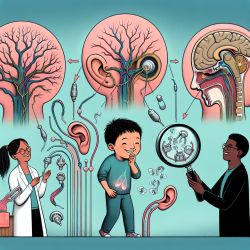Introduction
In the evolving landscape of childhood health interventions, peer mentorship emerges as a promising strategy to tackle complex issues such as obesity and poor nutrition. A recent systematic review titled Youth and Peer Mentor Led Interventions to Improve Biometric-, Nutrition, Physical Activity, and Psychosocial-Related Outcomes in Children and Adolescents sheds light on the effectiveness of these interventions. This blog explores the key findings and implications for practitioners aiming to enhance their skills and outcomes in child health interventions.
The Power of Peer Influence
Peer influence plays a significant role in shaping behaviors, particularly during adolescence. The systematic review highlights that peer-led interventions can effectively improve biometric outcomes, including BMI and physical activity levels, among children and adolescents. The use of peers as mentors leverages social dynamics, making health messages more relatable and impactful.
Key Findings from the Review
- Peer-led interventions showed positive impacts on biometric outcomes, such as BMI reduction and increased physical activity.
- Nutritional outcomes were mixed, with some studies reporting significant improvements in dietary habits, while others did not.
- The psychosocial benefits extended to both participants and mentors, enhancing self-efficacy and health knowledge.
Implementing Peer-Led Models
For practitioners, integrating peer mentorship into intervention programs requires careful planning and execution. Here are some strategies to consider:
- Training and Support: Provide comprehensive training for peer mentors to ensure they are well-equipped to lead and inspire.
- Structured Programs: Design structured programs that include clear objectives, activities, and evaluation metrics.
- Continuous Evaluation: Implement ongoing evaluation to assess the effectiveness and adapt strategies as needed.
Encouraging Further Research
While the review provides valuable insights, it also underscores the need for further research. Understanding the long-term impacts of peer mentorship on both mentors and participants is crucial. Additionally, exploring diverse settings and populations can enhance the generalizability of findings.
Conclusion
Peer mentorship offers a dynamic approach to improving health outcomes in children and adolescents. By harnessing the power of peer influence, practitioners can drive meaningful change and contribute to healthier futures. As we continue to refine and expand these models, the potential for positive impact grows exponentially.
To read the original research paper, please follow this link: Youth and Peer Mentor Led Interventions to Improve Biometric-, Nutrition, Physical Activity, and Psychosocial-Related Outcomes in Children and Adolescents: A Systematic Review.










